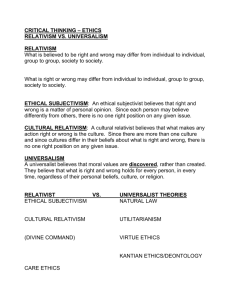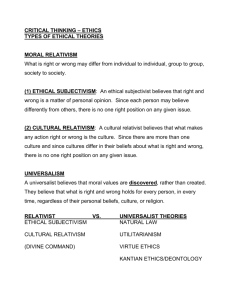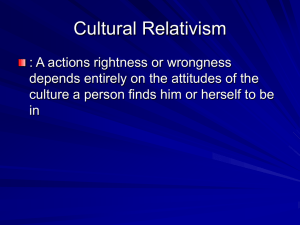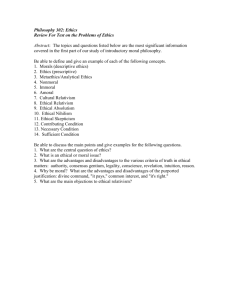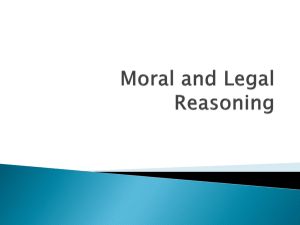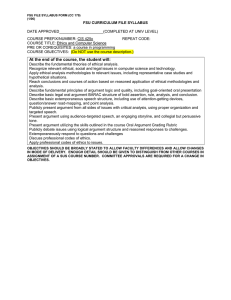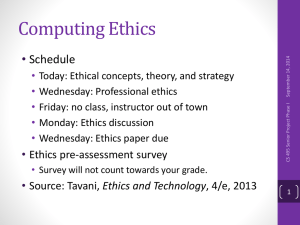Phil 399: Business Ethics Midterm Study Guide The exam will
advertisement
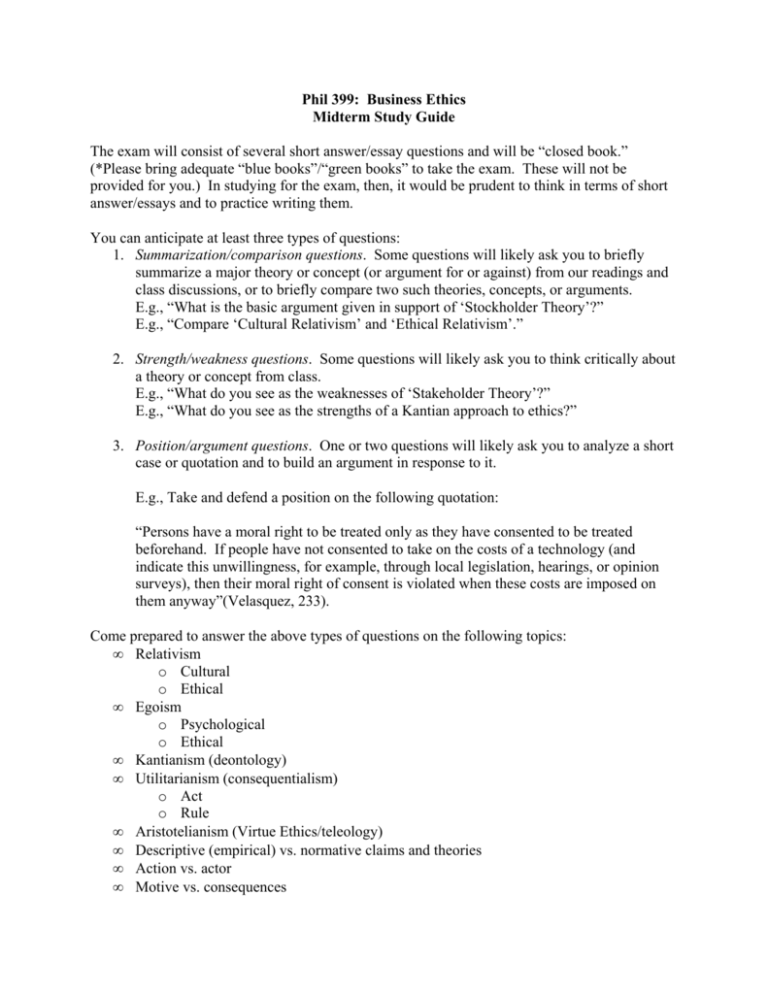
Phil 399: Business Ethics Midterm Study Guide The exam will consist of several short answer/essay questions and will be “closed book.” (*Please bring adequate “blue books”/“green books” to take the exam. These will not be provided for you.) In studying for the exam, then, it would be prudent to think in terms of short answer/essays and to practice writing them. You can anticipate at least three types of questions: 1. Summarization/comparison questions. Some questions will likely ask you to briefly summarize a major theory or concept (or argument for or against) from our readings and class discussions, or to briefly compare two such theories, concepts, or arguments. E.g., “What is the basic argument given in support of ‘Stockholder Theory’?” E.g., “Compare ‘Cultural Relativism’ and ‘Ethical Relativism’.” 2. Strength/weakness questions. Some questions will likely ask you to think critically about a theory or concept from class. E.g., “What do you see as the weaknesses of ‘Stakeholder Theory’?” E.g., “What do you see as the strengths of a Kantian approach to ethics?” 3. Position/argument questions. One or two questions will likely ask you to analyze a short case or quotation and to build an argument in response to it. E.g., Take and defend a position on the following quotation: “Persons have a moral right to be treated only as they have consented to be treated beforehand. If people have not consented to take on the costs of a technology (and indicate this unwillingness, for example, through local legislation, hearings, or opinion surveys), then their moral right of consent is violated when these costs are imposed on them anyway”(Velasquez, 233). Come prepared to answer the above types of questions on the following topics: • Relativism o Cultural o Ethical • Egoism o Psychological o Ethical • Kantianism (deontology) • Utilitarianism (consequentialism) o Act o Rule • Aristotelianism (Virtue Ethics/teleology) • Descriptive (empirical) vs. normative claims and theories • Action vs. actor • Motive vs. consequences • • • • • • • • • Stockholder Theory (Shareholder Theory) o “fiduciary” relationship Stakeholder Theory Consumer Protection o Contract View o Due Care Theory o Social Costs Theory (Strict Liability) Environmental Protection o Deep Ecology (“intrinsic value”) o Rights-based approaches o Utilitarian approaches Human Rights and Global Labor Practices o Theories of appropriate wages Home-country standards “Living wage” standard Classical liberal standard o “Exploitation”—When is someone being “exploited”? Advertising o Puffery o “Autonomy” (in desires and choices)—When is someone “autonomous”? o “Manipulation”—When is someone being “manipulated”? Accounting and Ethics Education o “bright line” test vs. current ethics education models Social Responsibility Model Code Model Stakeholder/Normative Model “Roger and Me” How to read a public policy article o E.g., two ways to challenge an argument



